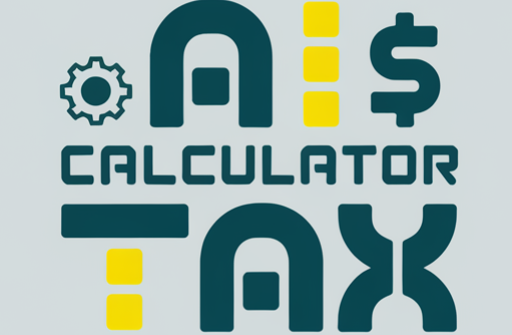In an era defined by rapid technological advancement, artificial intelligence (AI) has made significant strides across various domains, including financial services. One of the prominent applications of AI in this field is AI-driven calculators, particularly for tasks such as tax calculations, financial planning, and budgeting. While these tools offer a promise of accuracy, efficiency, and convenience, the question remains: Can AI calculators truly be trusted? This comprehensive exploration seeks to answer this question by examining the functionality, advantages, limitations, and ethical considerations surrounding AI calculators.
Understanding AI Calculators
AI calculators are software tools that utilize artificial intelligence to perform complex calculations and analyses. Unlike traditional calculators, which require manual input and operate based on predefined mathematical formulas, AI calculators leverage machine learning algorithms, data analytics, and sometimes natural language processing to provide more nuanced and context-aware results. These tools are commonly used in scenarios that involve tax calculations, financial forecasts, investment analysis, loan amortization, and various other financial assessments.
AI calculators can range from simple apps that calculate personal income taxes to sophisticated systems employed by financial institutions to model market trends and assess risk. The underlying technology allows these calculators to process vast amounts of data, learn from historical patterns, and make predictions or recommendations based on the inputs provided by users.
The Appeal of AI Calculators
The growing popularity of AI calculators can be attributed to several factors, each contributing to the perception that these tools are trustworthy:
- Accuracy and Precision: AI calculators are designed to handle complex calculations with a level of accuracy that surpasses human capability. They can consider multiple variables, apply relevant tax codes, or financial rules, and provide results that are mathematically sound. This level of precision is particularly valuable in fields where errors can have significant financial consequences, such as tax filing or investment planning.
- Efficiency and Speed: Traditional methods of performing financial calculations often require manual effort, consultation with experts, or the use of static spreadsheets. AI calculators, on the other hand, can process complex calculations in a matter of seconds. This efficiency is especially beneficial for users who need quick answers, such as taxpayers trying to estimate their liabilities before filing deadlines.
- User-Friendly Interfaces: Many AI calculators are designed with user experience in mind. They often feature intuitive interfaces, guided input forms, and visual aids such as graphs or charts that make complex financial data easier to understand. This accessibility encourages more people, including those without a financial background, to use these tools.
- Adaptability and Learning: One of the most significant advantages of AI is its ability to learn and adapt. AI calculators can update themselves based on changes in tax laws, financial regulations, or market conditions, ensuring that users always have access to the most current information. This adaptability reduces the risk of outdated or incorrect calculations.
- Cost-Effectiveness: Hiring financial professionals to perform similar calculations can be expensive. AI calculators provide a cost-effective alternative, offering expert-level analysis at a fraction of the cost. This affordability democratizes access to financial planning tools, making them available to a broader audience.
The Limitations of AI Calculators
Despite their numerous advantages, AI calculators are not without limitations. It is essential to understand these limitations to make an informed decision about their trustworthiness:
- Dependence on Data Quality: AI calculators rely heavily on the quality of the data they process. If the input data is inaccurate, incomplete, or outdated, the results generated by the AI calculator will also be flawed. For example, if a taxpayer inputs incorrect income information, the AI calculator’s tax estimate will be incorrect, potentially leading to financial penalties.
- Lack of Contextual Understanding: While AI calculators are proficient at processing numerical data and applying rules, they may lack the ability to fully understand the context in which certain financial decisions are made. For instance, an AI tax calculator may not account for unique or exceptional circumstances, such as a one-time financial windfall, that could impact a user’s tax liability.
- Overreliance on Algorithms: The algorithms used by AI calculators are only as good as the data and assumptions on which they are based. If the underlying algorithms are flawed, biased, or not updated regularly, the results produced by the AI calculator may be inaccurate. Additionally, the opacity of some AI systems, often referred to as “black-box” algorithms, can make it difficult for users to understand how results are derived.
- Security and Privacy Concerns: AI calculators often require users to input sensitive financial information, such as income, expenses, or investment details. If the data is not adequately protected, it could be vulnerable to cyberattacks or unauthorized access. Users must trust that the developers of these tools have implemented robust security measures to safeguard their data.
- Ethical Considerations: The use of AI in financial calculations raises ethical questions, particularly regarding transparency, accountability, and bias. For example, if an AI-driven loan calculator inadvertently incorporates biased data, it could lead to discriminatory outcomes, such as unfair lending practices. Ensuring that AI calculators are developed and used ethically is critical to maintaining trust in these tools.
Real-World Applications and Trustworthiness
To further assess whether AI calculators can be trusted, it is helpful to examine specific real-world applications and the trustworthiness of these tools in various scenarios:
- Tax Calculations: AI tax calculators are widely used by individuals and businesses to estimate tax liabilities, identify deductions, and file returns. These tools can accurately apply tax laws and regulations, but their trustworthiness depends on the accuracy of the input data and the complexity of the tax situation. For standard tax scenarios, AI calculators are generally reliable. However, for more complex cases involving multiple income streams, foreign assets, or special deductions, consulting a tax professional may be advisable.
- Financial Planning: AI-driven financial planning tools help users create budgets, plan for retirement, and manage investments. These tools can analyze a user’s financial situation and provide personalized recommendations. While AI calculators can be trusted for basic financial planning, users should be cautious about relying solely on AI for significant financial decisions, especially when market conditions are volatile or when personal circumstances are unique.
- Loan and Mortgage Calculations: AI calculators are commonly used to estimate loan payments, mortgage affordability, and interest rates. These tools are generally accurate for straightforward calculations but may not account for all the variables that a human loan officer would consider, such as credit history nuances or future income projections. Therefore, while AI calculators are useful for preliminary assessments, users should seek professional advice for final decisions.
- Investment Analysis: AI calculators can assess investment portfolios, forecast returns, and recommend asset allocations. These tools are valuable for individual investors looking to optimize their portfolios. However, the dynamic nature of financial markets means that AI predictions are inherently uncertain. Trusting an AI calculator for investment decisions should be done with caution, and users should diversify their sources of financial advice.
- Business Financial Modeling: Businesses use AI calculators for financial modeling, including cash flow projections, profit and loss analysis, and risk assessment. These tools can process large datasets and generate insights that would be time-consuming for human analysts to produce. However, the trustworthiness of AI calculators in business contexts depends on their ability to accurately model complex business environments and account for external factors such as market competition or regulatory changes.
Enhancing Trust in AI Calculators
Given the potential limitations and challenges associated with AI calculators, it is essential to consider how trust in these tools can be enhanced. The following strategies can help build and maintain trust:
- Transparency and Explainability: Developers of AI calculators should strive to make their algorithms as transparent and explainable as possible. Users should be able to understand how calculations are performed and what assumptions are being made. This transparency helps users make informed decisions and increases their confidence in the tool.
- Regular Updates and Maintenance: To ensure accuracy, AI calculators must be regularly updated to reflect changes in laws, regulations, and market conditions. Developers should commit to ongoing maintenance and provide users with information about when and how updates are made.
- User Education and Support: Providing users with educational resources on how to use AI calculators effectively and offering customer support can help address concerns and build trust. Users should be aware of the limitations of these tools and know when to seek professional advice.
- Data Security and Privacy Protections: Protecting user data is paramount to building trust in AI calculators. Developers should implement robust security measures, such as encryption, two-factor authentication, and regular security audits. Additionally, clear privacy policies should be provided to inform users about how their data will be used and protected.
- Ethical AI Development: Ensuring that AI calculators are developed ethically is crucial for maintaining trust. This includes addressing potential biases in algorithms, ensuring fairness in outcomes, and being transparent about any limitations or risks associated with the tool. Developers should also consider the broader social and economic implications of their AI systems.
Conclusion: Can AI Calculators Be Trusted?
AI calculators offer a compelling combination of accuracy, efficiency, and accessibility, making them valuable tools for a wide range of financial tasks. However, their trustworthiness is not absolute and depends on several factors, including data quality, contextual understanding, algorithm reliability, security, and ethical considerations.
For standard, well-defined scenarios, such as simple tax calculations or straightforward loan assessments, AI calculators can generally be trusted to deliver accurate results. However, for more complex or high-stakes financial decisions, users should approach AI calculators with caution, recognizing their limitations and seeking additional guidance from professionals when necessary.
Ultimately, the trustworthiness of AI calculators is not a binary judgment but a nuanced assessment that varies depending on the specific use case, the quality of the tool, and the user’s understanding of its capabilities and limitations. By adopting best practices in transparency, security, and ethical development, the creators of AI calculators can help build and sustain trust in these powerful tools. As AI technology continues to evolve, so too will the potential and reliability of AI calculators, making them increasingly integral to the financial decision-making process.


1 thought on “Can AI Calculators Be Trusted?”